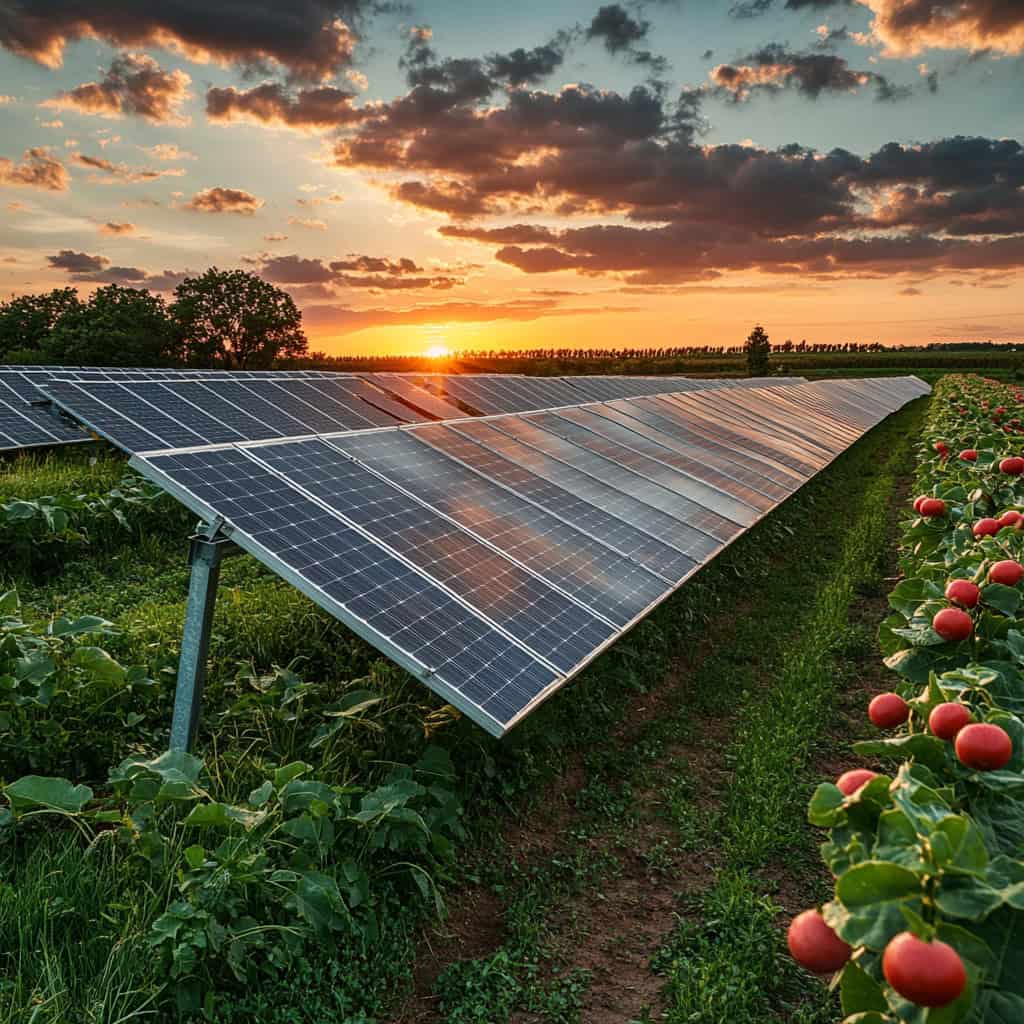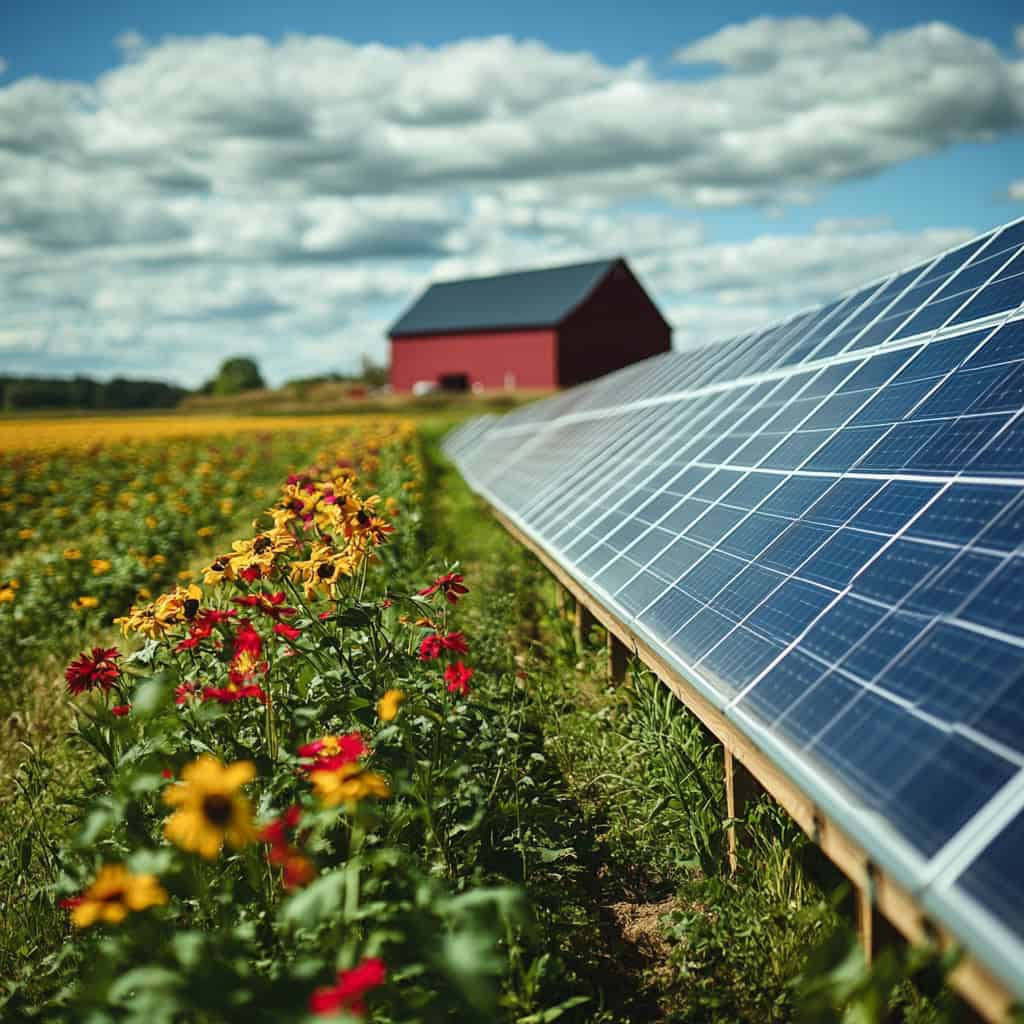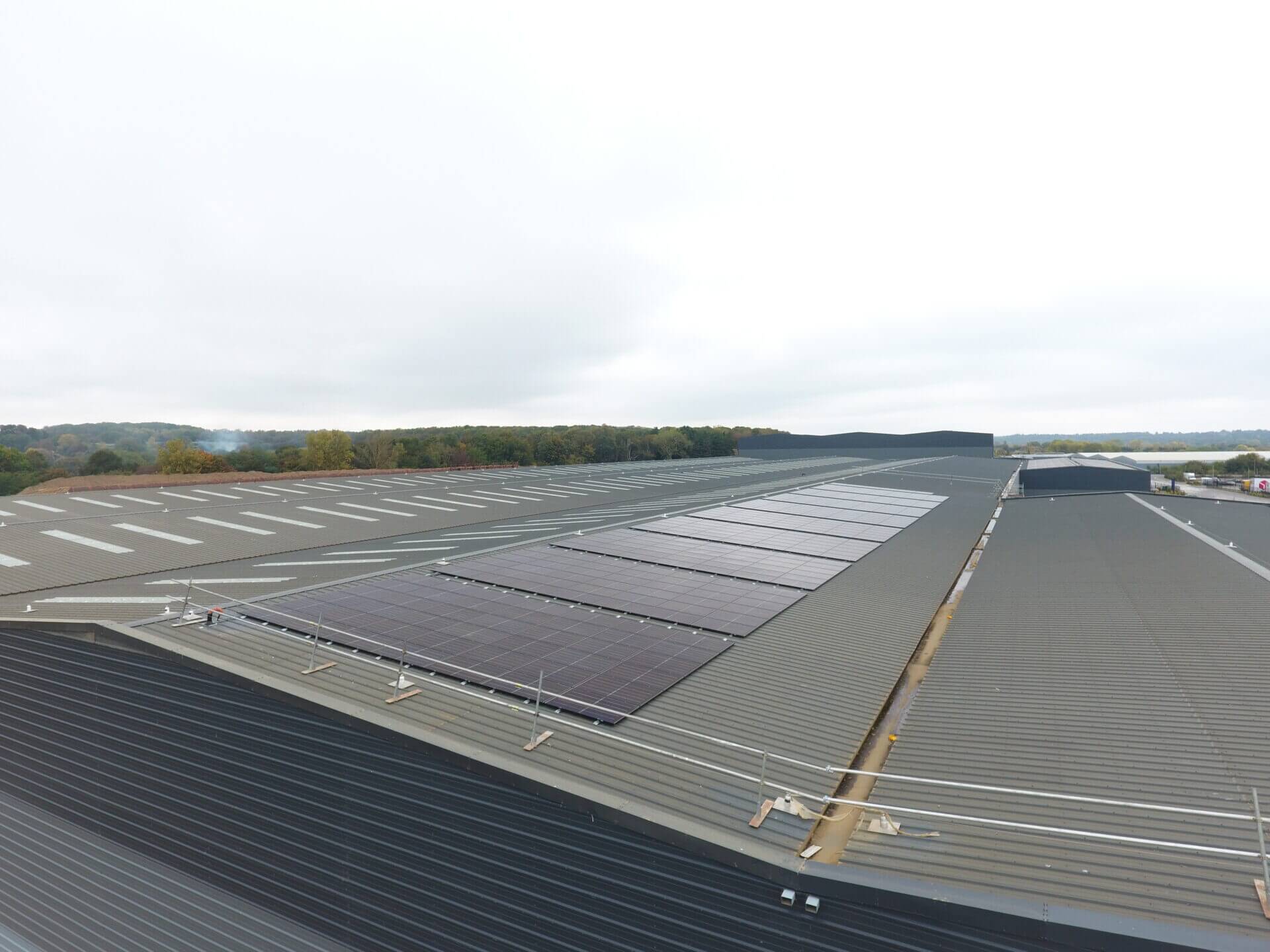As global challenges like climate change, food security, and renewable energy grow, agrivoltaics has become a key solution.
Agrivoltaics combines solar panels with farming. This partnership helps both energy production and agriculture. It makes the best use of land. It also tackles important environmental and economic issues.
What Is Agrivoltaics?
Agrivoltaics, also known as agrophotovoltaics, involves the strategic placement of solar panels over farmland or pasture. These systems are designed to let sunlight reach the ground. This helps crops grow and produces renewable energy.
Key features include:
- Elevated Panels: Solar panels are mounted at least two metres above the ground.
- Optimised Design: Panels are spaced and tilted to ensure sunlight reaches crops while capturing solar energy efficiently.
- Dual-Purpose Land Use: Under the panels, land can be used for many things. You can grow crops, graze livestock, or support pollinator habitats.

How Agrivoltaics Creates Mutual Benefits
Improves Crop Growth
The shade provided by solar panels reduces direct sunlight exposure, moderating soil and air temperatures. This controlled environment helps retain soil moisture, reducing water evaporation and creating favourable conditions for crop growth. Heat-sensitive crops, such as lettuce and spinach, thrive in this partially shaded microclimate.
Protects Crops from Extreme Weather
Agrivoltaics systems act as a shield against harsh weather conditions. The panels protect crops from intense sunlight, mitigate drought stress, and guard against damage from hailstorms or late spring frosts.
Enhances Animal Welfare
In farms where livestock are raised, the shaded areas beneath solar panels provide a cooler, more comfortable grazing environment. This reduces heat stress for animals, particularly in hot climates, improving their welfare and productivity.
Conserves Water Resources
With the reduced heat and evaporation beneath the panels, less water is required for irrigation. This benefit is especially critical in arid regions, where water scarcity poses a challenge for traditional farming methods.
Boosts Energy Production
Solar panels themselves perform better when operating in cooler conditions. The vegetation or crops beneath the panels can cool the surrounding environment, improving the panels’ efficiency and electricity output.
Stabilises Farmer Income
By producing both crops and renewable energy on the same land, farmers can diversify their income streams. The energy produced can be used on-site or sold to the grid. This creates a steady income along with farming profits.
Who Benefits From Agrivoltaics?
Farmers
Agrivoltaics helps farmers adapt to the challenges of climate change by enhancing crop resilience, improving livestock welfare, and providing a reliable income from energy production.
The Environment
By optimising land use, agrivoltaics reduces the need to choose between energy generation and agriculture. It also supports climate change mitigation by decreasing carbon emissions, conserving water, and promoting biodiversity.
Consumers
A sustainable food system is vital for long-term food security. Agrivoltaics ensures reliable food production while supporting renewable energy growth, contributing to a healthier planet and a stable food supply for future generations.

Conclusion
Agrivoltaics represents an innovative and practical approach to addressing the dual challenges of renewable energy and sustainable agriculture. By fostering a mutually beneficial relationship between solar panels and farming practices, it not only improves land-use efficiency but also offers tangible benefits to farmers, the environment, and society as a whole.
As this concept gains traction globally, agrivoltaics has the potential to transform the way we think about land use, energy, and food production, paving the way for a greener and more resilient future.

